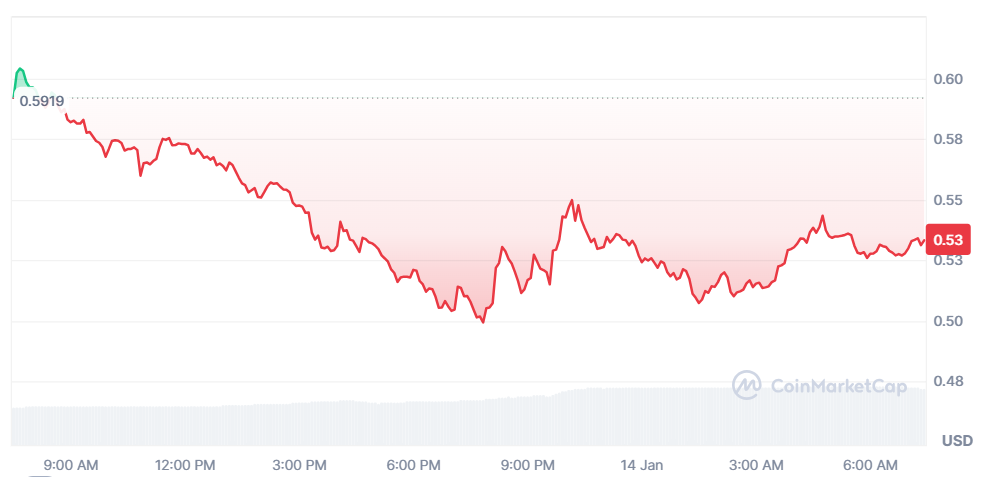Can Usual’s revenue switch deliver on its promises amid growing concerns?
The Revenue Switch, a mechanism designed to distribute 100% of Usual’s (USUAL) protocol revenue to USUALx stakers, has been launched by the USUAL token and USD0 stablecoin ecosystem creators. While the initiative marks a significant step forward for decentralized finance, its debut is accompanied by ongoing community concerns about recent changes to the protocol’s redeem function.
Activated on Jan. 13, 2025, the Revenue Switch enables USUALx stakers to receive protocol-generated revenue, estimated at $5 million per month, directly in USD0. This mechanism links token value to actual earnings, aiming to incentivize long-term staking and support sustainable protocol growth.
As of Jan. 14, 2025, the USUAL token is trading at $0.5319, with a market capitalization of $275.68 million and a 24-hour trading volume of $194.6 million. Approximately 36.53% of the token supply is staked, offering an annual yield of 275%, 42% in USD0 rewards, and 233% in USUAL.

Despite the excitement surrounding the Revenue Switch, the protocol has faced criticism over its decision to update the redeem function for USD0 stablecoins. The new feature allows for temporary suspension of redemptions under specific conditions, such as during periods of market volatility or liquidity constraints. While USUAL has clarified that this change is intended to maintain stability in extreme scenarios, it has raised concerns about the concentration of control and potential implications for decentralization.
The introduction of the Revenue Switch and adjustments to the redeem function form part of USUAL’s broader strategy to secure its position as a leading DeFi protocol. The Revenue Switch aims to enhance the utility of USUAL tokens, stabilize returns for stakers, and provide a transparent mechanism for revenue distribution. USUAL has also indicated plans to refine its model in the coming months, incorporating advanced staking and governance frameworks inspired by the “veModel” used in other DeFi projects.
As USUAL navigates these developments, the success of the Revenue Switch may serve as a proof of concept for revenue-based tokenomics, potentially influencing future practices in the sector. At the same time, the protocol’s response to community concerns will be closely watched, as it could impact trust and adoption in an increasingly competitive DeFi ecosystem.




